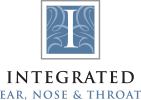SWALLOWING DISORDERS
In Denver and Lone Tree, Colorado
Difficulty in swallowing (dysphagia) is common among all age groups, especially the elderly. The term dysphagia refers to the feeling of difficulty passing food or liquid from the mouth to the stomach. This may be caused by many factors, most of which are temporary and not threatening. Difficulties in swallowing rarely represent a more serious disease, such as a tumor or a progressive neurological disorder. When the difficulty does not clear up by itself in a short period of time, you should see one of our ENT physicians.
How do we swallow?
People normally swallow hundreds of times a day to eat solids, drink liquids, and swallow the normal saliva and mucus that the body produces.
The process of swallowing has four related stages:
- The first stage is the oral preparation stage, where food or liquid is manipulated and chewed in preparation for swallowing.
- The second stage is the oral stage, where the tongue propels the food or liquid to the back of the mouth, starting the swallowing response.
- The third stage is the pharyngeal stage which begins as food or liquid is quickly passed through the pharynx, the region of the throat which connects the mouth with the esophagus, then into the esophagus or swallowing tube.
- In the final, esophageal stage, the food or liquid passes through the esophagus into the stomach.
Although the first and second stages have some voluntary control, stages three and four occur involuntarily, without conscious input.
Swallowing disorder symptoms
Symptoms of swallowing disorders may include:
- Drooling.
- A feeling that food or liquid is sticking in the throat.
- Discomfort in the throat or chest (when gastro esophageal reflux is present).
- A sensation of a foreign body or “lump” in the throat.
- Weight loss and inadequate nutrition due to prolonged or more significant problems with swallowing.
- Coughing or choking caused by bits of food, liquid, or saliva not passing easily during swallowing and being sucked into the lungs.
- Voice change.
How are swallowing disorders diagnosed?
When dysphagia is persistent and the cause is not apparent, our ENT physician will discuss the history of your problem and examine your mouth and throat. This may be done with the aid of mirrors. Sometimes a small tube (flexible laryngoscope) is placed through the nose and the patient is then given food to eat while the scope is in place in the throat. These procedures provide visualization of the back of the tongue, throat, and larynx (voice box). These procedures are called FEES (Fiber optic Endoscopic Evaluation of Swallowing) or FEESST (Flexible Endoscopic Evaluation of Swallowing with Sensory Testing). If necessary, an examination of the esophagus, named TransNasal Esophagoscopy (TNE), may be carried out by one of our ENT doctors. If you experience difficulty swallowing, it is important to seek treatment to avoid malnutrition and dehydration.
Swallowing disorder treatment
Many of these disorders can be treated with medication. Drugs that slow stomach acid production, muscle relaxants, and antacids are a few of the many medicines available. Treatment is tailored to the particular cause of the swallowing disorder.
Gastro esophageal reflux can often be treated by changing eating and living habits in these ways:
- Eat a bland diet with smaller, more frequent meals.
- Eliminate tobacco, alcohol, and caffeine.
- Reduce weight and stress.
- Avoid food within two hours of bedtime.
- Elevate the head of the bed at night.
If these don’t help, antacids between meals and at bedtime may provide relief.
Many swallowing disorders may be helped by direct swallowing therapy. A speech pathologist can provide special exercises for coordinating the swallowing muscles or stimulating the nerves that trigger the swallow reflex. Patients may also be taught simple ways to place food in the mouth or position the body and head to help the swallow occur successfully.
Some patients with swallowing disorders have difficulty feeding themselves. An occupational therapist or a speech language pathologist can aid the patient and family in feeding techniques. These techniques make the patient as independent as possible. A dietician or nutritional expert can determine the amount of food or liquid necessary to sustain an individual and whether supplements are necessary.
Once the cause is determined, swallowing disorders may be treated with:
- Medication
- Swallowing therapy
- Surgery
Surgery is used to treat certain problems. If a narrowing exists in the throat or esophagus, the area may need to be stretched or dilated. If a muscle is too tight, it may need to be dilated or released surgically. This procedure is called a myotomy and can be performed by one of our ENT physicians.
Many diseases contribute to swallowing disorders. If you have a persistent problem swallowing, please make an appointment with one of our ENT doctors.
Swallowing disorder causes
Any interruption in the swallowing process can cause difficulties. Eating slowly and chewing thoroughly can help reduce problems with swallowing. However, difficulties may be due to a range of other causes, including something as simple as poor teeth, ill fitting dentures, or a common cold. One of the most common causes of dysphagia is gastro esophageal reflux. This occurs when stomach acid moves up the esophagus to the pharynx, causing discomfort. Other causes may include: hypertension; diabetes; thyroid disease; stroke; progressive neurologic disorder; the presence of a tracheotomy tube; a paralyzed or unmoving vocal cord; a tumor in the mouth, throat, or esophagus; or surgery in the head, neck, or esophageal areas.
Swallowing difficulty can also be connected to some medications including:
- Nitrates.
- Anticholinergic agents found in certain anti-depressants and allergy medications.
- Calcium tablets.
- Calcium channel blockers.
- Aspirin.
- Iron tablets.
- Vitamin C.
- Antipsychotic.
- Tetracycline (used to treat acne).







